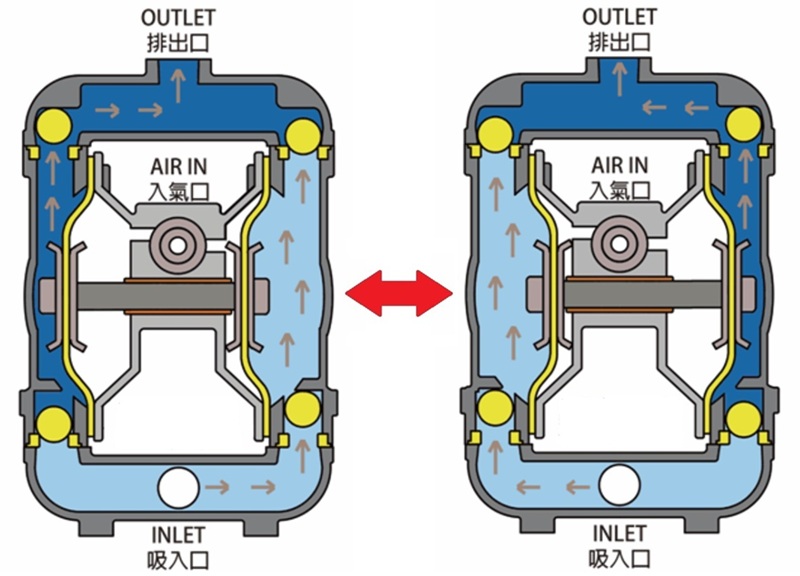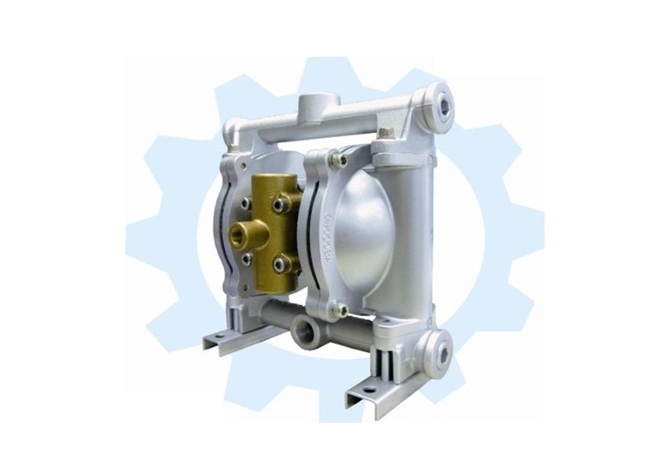Introduction
All of our pneumatic diaphragm pumps and parts are 100% strictly tested and controlled, with excellent quality, simple operation and safe use. With complete sizing specifications, inlet and outlet ranging from 1/2" to 3", it can meet various flow requirements. With an experienced sales team, it can provide customers with complete technical advice and support services. It has been highly praised in fluid applications in various industries.
Selection & Feature
| Pump selection |
Features |
|
| 1. Chemical properties of the transported liquid (chemical resistance) 2. Flow (LPM) 3. Temperature (°C) 4. Viscosity (cps) 5. Maximum particle size of particles contained (mm) 6. Lift (mH) 7. Self-priming height (H) 8. Pipe inlet and outlet diameter (inch) | *Safe and explosion-proof, no sparks. *No mechanical oil seals, no rotating bearings. *No return pipe is required. *Can run idling continuously without damage. *The delivery volume and discharge pressure can be adjusted. *It can handle abrasive and high viscosity fluids or non-abrasive and highly corrosive fluids. *The pump can be shut down or stopped at will during delivery without any damage. *It can be used as a pressure pump for mud extraction machinery in wastewater treatment. *Can handle high temperature (130°C) fluids. *Completely self-priming, no need to add water head. | |
※ How pump works

※ Proper material for liquid transportation (reference only)

※ Proper material for liquid transportation (reference only)
| Diaphragm material |
Operating temp. | Wetted material-Alum. alloy | Wetted material-SS316 | Wetted material-PP |
| Neoprene | 0~80°C | seawater, glaze, refrigerant, mineral mud, clay | wastewater, lime | sulfuric acid (20%) |
| NBR | 0~80°C | lubricating oil, heavy oil | printing ink, resin | |
| EPDM | 0~90°C | dichloromethane | Alcohol, lactic acid, soybean oil | |
| Teflon | 0~130°C | toluene, trichloroethane, wintergreen oil | nitric acid, acetone | caustic soda, electroplating solution |
| Viton | 0~130°C | asphalt | turpentine |
※ Usages
| Transport of various glazes and slurries in ceramic or tile industry. | Food industry conveys jams, beverages, jellies... | Transport of various adhesives, glues and solvents. | |
| Wastewater treatment and sludge transportation. | Transportation of various oil products such as heavy oil and gasoline. | Transportation of latex in rubber industry. | |
| Pulp conveying in paper mills. | Ink and paint factories transport inks, lacquers, resins and pigments. | Transporting bilge sewage and waste oil. | |
| The petrochemical industry transports various abrasive and corrosive chemicals. | Transport of various dry low-density powders. | Pressurized spray of various liquids. |


 Materials and Chemicals
Materials and Chemicals Food and Beverage
Food and Beverage Biotechnology
Biotechnology Plastics and Rubber
Plastics and Rubber Electronics
Electronics